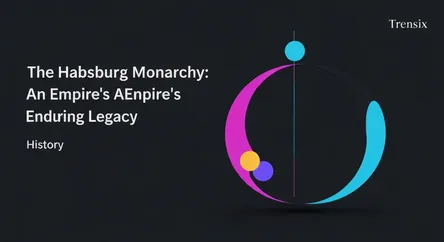History
The Habsburg Monarchy: An Empire's Enduring Legacy

Explore the Habsburg Monarchy, a multi-ethnic Central European power that shaped the continent for centuries and whose legacy influences the region today.
What is it?
The Habsburg Monarchy was the collection of territories ruled by the House of Habsburg, one of Europe's most influential dynasties. From 1282 until its dissolution in 1918, it grew from a small duchy in Austria to a vast, multi-ethnic empire across Central Europe. At various times, its domains included the Holy Roman Empire, Spain, Bohemia (Czechia), Hungary, Croatia, and parts of Italy and Poland. This complex political entity was not a unified nation-state but a composite monarchy of diverse peoples, languages, and cultures held together by allegiance to a single sovereign. Its core later became the Austrian Empire (1804–1867) and then the Austro-Hungarian Empire (1867–1918), which ultimately collapsed at the end of World War I.
Why is it trending?
There is a renewed interest in the Habsburg Monarchy as a historical case study for contemporary issues. Its long history of governing a diverse, multinational realm is being re-examined for lessons on managing multiculturalism and supranational organization, drawing comparisons to the modern European Union. Recent historical works and a sense of nostalgia in its former territories have challenged the old view of it as merely a "prison of peoples." Furthermore, academic research on the "Habsburg Effect" finds that a legacy of more reliable state institutions has led to higher trust in government in regions formerly under Habsburg rule, making its history relevant to today's political science.
How does it affect people?
The Habsburg Monarchy's legacy is deeply embedded in the culture, architecture, and politics of Central Europe. Cities like Vienna, Prague, and Budapest are filled with imperial architecture that shapes their identity. The empire's administrative and legal traditions influenced the systems of the successor states that emerged after its collapse. For people living in these regions today, its influence can be seen in shared cultural traits and a complex historical identity. Research suggests a lasting "Habsburg effect," where former territories exhibit higher levels of trust in state institutions and rule of law compared to areas once ruled by other empires, demonstrating a tangible impact on civic attitudes centuries later.